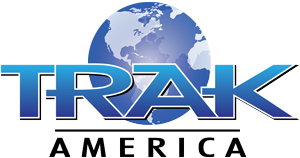Red Pill or Blue Pill: The Ethics of Using Generative AI in Legal Practice
NCBA Legal Learning Webinar
Some lawyers will get rich using AI in their practices; others will get sued and disciplined. Join us in this fast-paced, conversational discussion regarding the latest developments in the use of AI in legal practice and the associated ethical rules and hazards. Do the benefits outweigh the risks? What are the common threats to your firm’s well-being if you decide to employ generative AI in your practice? This discussion will help lawyers:
- Identify risks arising from the use of generative AI that could result in rule violations, disciplinary complaints, and legal malpractice claims
- Devise strategies to minimize and manage those risks
- Comply with the Rules of Professional Conduct and related duties
- Create measures giving reasonable assurance that all lawyers and non-lawyers in the firm conform to the Rules of Professional Conduct
Join Noah Fiedler and Alyssa Johnson of Barron & Newburger, P.C. Attorneys Risk Management Practice, into the ethical matrix of using generative AI in your legal practice.
ETHICS CLE PENDING
CLE Information
National Creditors Bar Association is a national provider of legal educational content. NCBA’s goal is to provide its members with as many opportunities as possible to earn Continuing Legal Education (CLE) credits. Some NCBA webinars state that they are pending approval. If a webinar is pending approval, it means that NCBA’s education staff is awaiting confirmation of approval for CLE credit from the accrediting body of a particular state; it should be noted that individual states have different response and approval rates. NCBA expects that the course will be approved for the credit amount and type listed, but approval is not guaranteed. An attorney can still take the course at their own discretion, though.
It is not uncommon for a course which is pending approval to not be approved until after the webinar has taken place. Once an official decision notice arrives from the state, NCBA will notify attorneys who have completed the course as soon as possible via email, and will re-issue any certificates of completion to reflect the updated state reporting numbers. However, it is recommended that attorneys do not view webinars that are pending approval close to their CLE deadline, as NCBA cannot guarantee that a course will be approved in time.
National Creditors Bar Association will seek MCLE accreditation, with the assistance of the ABA MCLE, for this webinar. NCBA will seek General CLE credit hours in 60-minute-hour states, and in 50-minute states, subject to each state’s approval and credit rounding rules. States typically decide whether a program qualifies for MCLE credit in their jurisdiction 4-8 weeks after the program application is submitted. For many live events, credit approval is not received prior to the program. A link for CLE requests will be provided to webinar attendees who have met the attendance and engagement requirements.

